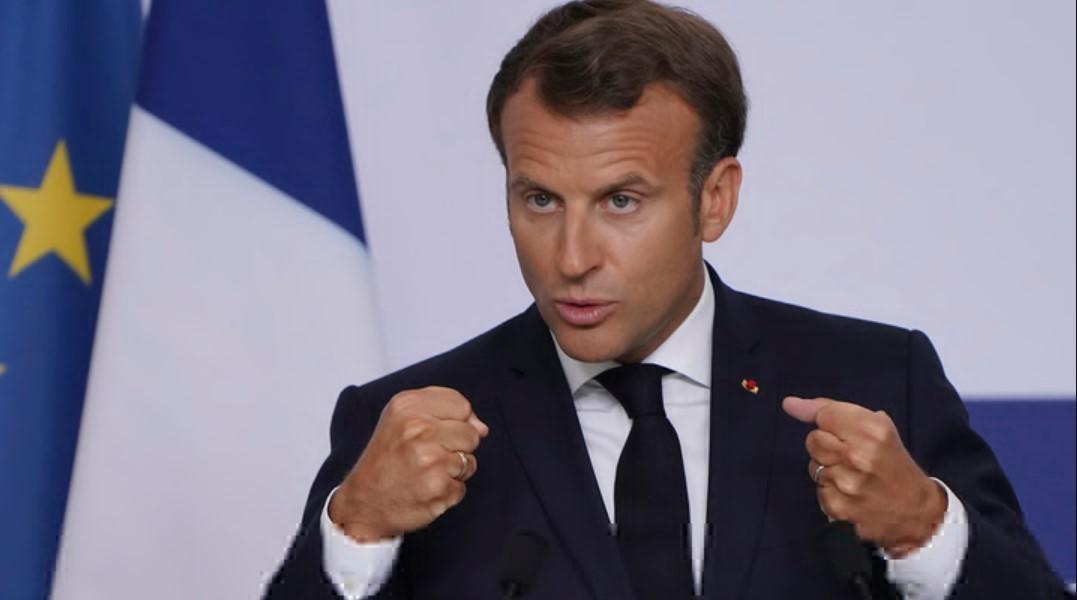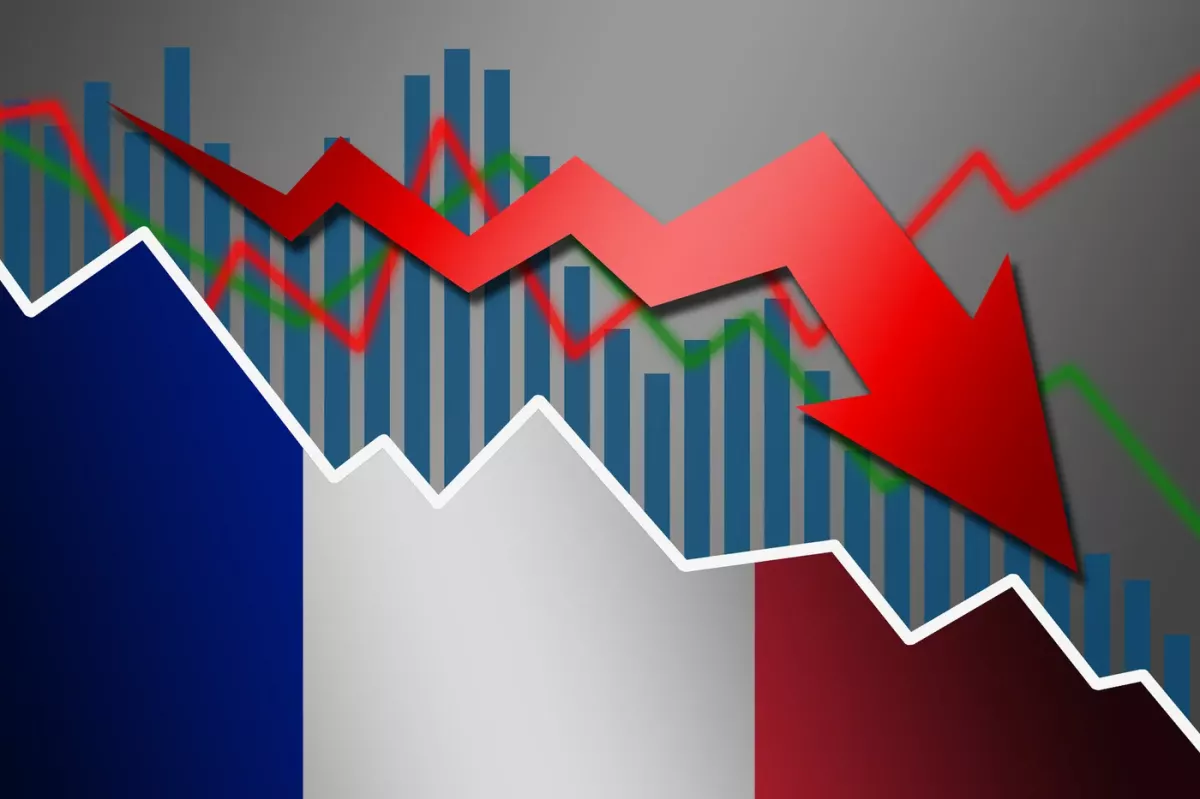The French storm sweeps away Barnier Is Macron next?
The French government of Barnier has fallen, but President Macron is not ready to resign. What lies ahead for the Fifth Republic?
On the eve of December 4, the French National Assembly voted to dismiss the Cabinet of Ministers formed by the President despite the will of the voters. But that's not all – France still lacks a budget for the next year, and some experts are even drawing parallels with Greece's unfortunate fate during the debt crisis.
Political acrobat
On the evening of December 4, the French parliament voted to dismiss Michel Barnier's coalition government. A total of 331 MPs voted in favour of the motion of no confidence, significantly more than the required 288 votes. This situation has not occurred in France since 1962. It seems that political and economic instability in France will continue to deepen.
The political crisis in France began back in June, when Macronist parties suffered a crushing defeat in the European Parliament elections, significantly losing to the far-right National Rally (RN) of Marine Le Pen. In response, President Emmanuel Macron took an extraordinary step—dissolving parliament. However, early elections produced another unexpected result—a victory for left-wing parties, which managed to unite in the New Popular Front. The Macronist liberals came in second, and the far-right took third place. The winning Popular Front legally had the right to form its own government. But Macron, taking advantage of the fact that no party or coalition had a decisive majority in parliament, continued to play his own game.

In the circuses of the early 20th century, there was an act known as the "gutta-percha boy." A similar performance, but on the political stage, was attempted by President Macron. He suddenly became incredibly elastic, but he began stretching exclusively towards the right and the far-right. And he quickly forgot that not long ago, his camp had branded the National Rally almost as "fascists." Meanwhile, the left-wing parties of the New Popular Front were not only categorically denied the opportunity to form a government, but even to participate in it.
As a result of Macron's political acrobatics, the "political transformer" emerged in early September—the current cabinet of Michel Barnier. The 73-year-old Prime Minister, like most of his ministers, belongs to the almost marginal right-centre party, The Republicans, which won only 8% of the votes in the elections. Another part of the portfolios went to Macron's liberal allies. Macron's cunning calculation was that the right-wing conservatives of the "Republicans" would be supported by the far-right faction. But it seems that this time, Emmanuel Macron has outplayed himself...
Punitive budget
Although initially, the plan for actual support of Macron's government by the far-right worked. The left-wing Popular Front members, roughly pushed away from executive power, expressed their distrust of the government in early October. However, at that time, the MPs of the National Rally did not even think of joining this initiative by the left and saved Barnier and his ministers. But soon, a new crisis erupted in parliament, and it was linked to the highly pressing issue for the vast majority of French citizens—the formation of the state budget for 2025.
The liberal government of France has long pursued a policy of various social cuts and reductions, regardless of protests from the Yellow Vests, farmers, or mass demonstrations against raising the retirement age. The new right-centre government also stayed true to this course. The 2025 budget included a new reduction in public spending—on healthcare and pension benefits. Even Marine Le Pen, who is usually generous with populism but quickly forgets her social promises in practice, called Barnier's budget "punitive."

At the same time, the French will once again be forced to tighten their belts amid the unfolding severe economic crisis and an epidemic of layoffs. Recently, 2,380 jobs were cut at Auchan, 1,250 at Michelin, and 868 at Valeo. The wave of layoffs is also sweeping through the automotive industry, which is struggling to withstand competition from China. By the end of 2024, 65,000 collective layoff procedures are expected at small and medium-sized businesses. This year, over 52,000 bankruptcies have already been registered in France, a 20% increase compared to last year. According to forecasts, another 160,000 jobs in France are at risk of being eliminated.
And so, largely thanks to Macron and Co.'s "clever" manoeuvres, Marine Le Pen, with her party's third-place result in the elections, has acquired almost a pivotal role in French politics. First, she played along with Barnier, systematically forcing the Prime Minister to accept the far-right's demands. In just a few days, Marine Le Pen easily secured the cancellation of amendments to electricity taxes, revisions to public healthcare, changes to the legislative voting method, and reimbursement for some medications.
Meanwhile, the Prime Minister, who had been yielding to the far-right, made no moves toward even the most moderate left-wing factions. After this, the National Rally decided to strike a decisive blow to Barnier's government. Among other things, the right-wing populists aim to significantly boost their party's ratings and clear the path to the presidential elections. While the presidential elections are scheduled for 2027, there's intrigue surrounding the possibility of them taking place much sooner. But more on that later...
Macron – the engineer of chaos
During the parliamentary debates on the vote of no confidence, Michel Barnier delivered a grandiose speech, warning that if he resigned, the budget might not be approved by the end of the year. Former Prime Minister Gabriel Attal also urged not to dismiss the government: "You are making a mistake in the face of history." Then the leaders and deputies of the main parliamentary groups took the floor. The left-wing, far-left, and far-right were unwavering on this issue, effectively forming a "coalition of opposites." Olivier Faure, leader of the Socialists, who are not particularly known for their radicalism, said just before the vote: "We are against this budget, which forces the middle class to bear the burden of debt, which successive Macron governments helped create, particularly through handouts to the rich. In seven years, the only thing that has fallen on the French is debt."
In the leading force of the left-wing coalition, La France Insoumise (LFI), led by Jean-Luc Mélenchon, it was previously stated: "Michel Barnier has just initiated the 49.3 bill to empty the social security treasury through his financing bill. If he succeeds: hospitals in ruins, underpaid caregivers, frozen pensions, inflated consultation and medication prices, a tax on students..."
"Today, we are ringing the death knell for the president’s mandate," declared Eric Coquerel, a deputy from La France Insoumise, just before the vote in parliament.
"The engineer of this chaos is the president of the republic," said Nicolas Sansu, leader of the Left Democrats and Republicans.
The left-wing and far-right separately put forward their motions of no confidence. The first vote came from the Popular Front, and deputies from the National Rally also voted in favour. As a result, yet another Macronist government, already set up for a struggle, collapsed.
Macron, leave
As reported by French media, the situation has reverted to where it was four months ago, with a new search for an agreement on a government coalition. La France Insoumise (LFI) once again insists on a government formed by the New Popular Front, the largest parliamentary party. However, this is unlikely—finding potential allies for a coalition that includes the "far-left" LFI seems difficult, especially with Macron and corporate interests unlikely to agree. But Macronists might attempt a different strategy—trying to divide the New Popular Front by separating moderates like the Socialist Party and the Greens from La France Insoumise and the Communists. In coalition with these more accommodating leftists, they could attempt to form their own government. It cannot be ruled out, however, that the National Rally might push for the formation of a cabinet with their direct involvement.
However, much of the situation's development will now depend on the future political fate of Emmanuel Macron. The president, who has suffered three major political defeats in the last six months (losing the European Parliament elections, the National Assembly elections, and receiving a vote of no confidence in his government), essentially has no moral right to remain in office. Especially considering that opinion polls show the majority of the French want him to step down.
In November, 63% of those surveyed believed that if the government resigned, the president should also step down. Jean-Luc Mélenchon, leader of La France Insoumise, stated that he would demand Macron’s resignation if the Popular Front government is not approved. However, the Socialists seem to be holding off on calling for Macron's resignation at this point. Marine Le Pen, while somewhat ambiguous, also declared that her faction does not currently support the demand for the president’s resignation. As for Emmanuel Macron himself, he has already stated that he has no intention of leaving office.

There is, however, a very real possibility that following the government's resignation, the work of the National Assembly could also be suspended.
Overall, the Fifth Republic is facing an intensifying crisis ahead. Political instability will undoubtedly impact the economy, which is already going through tough times. Even before the vote of no confidence was announced, financial markets were nervously reacting to the situation — the interest rate on France’s 10-year government bonds (which, by the way, are quite burdensome) briefly rose above that of Greece during the severe debt crisis of 2010.
The contradictions within French society are also growing. Recent surveys by the IPSOS Institute showed that only 3% of French citizens are completely satisfied with life in the country and with the government, and among them, only 10% are supporters of Macron. 70% of those surveyed believe that their lives are worsening, and 55% are barely making ends meet. 87% of respondents think the country is in decline. 63% believe the government is corrupt, 78% say it does not represent the people, and 83% feel it acts in its own selfish interests.
There is rising mutual hatred between different ethnic groups, as well as between left-wing and right-wing factions. It is in this objective economic and social climate, and with corresponding public sentiment, that the current acute political crisis in France has its roots. Isn’t it time for Paris to focus more on solving the pressing problems of its own citizens rather than continuing to interfere in the affairs of other countries and sovereign nations?








